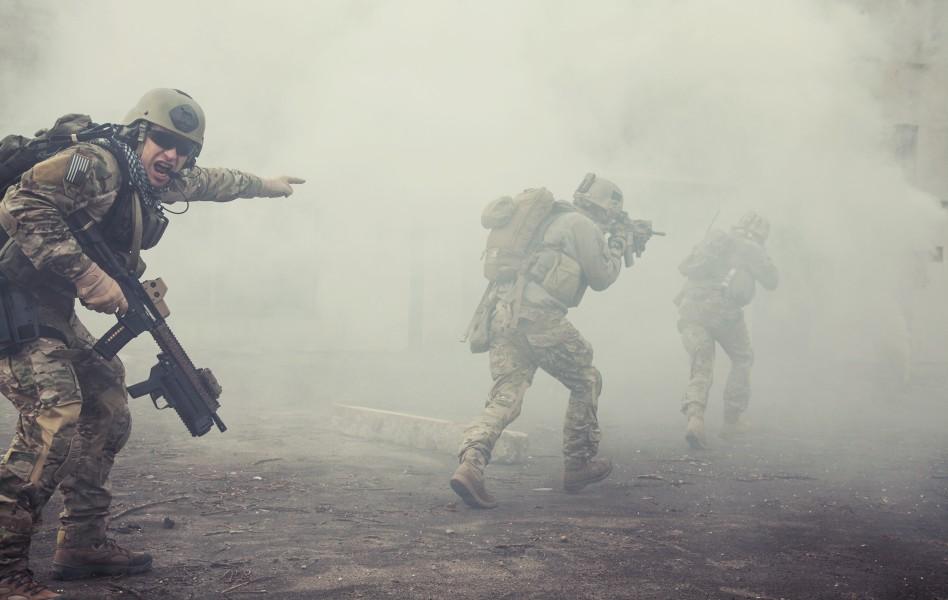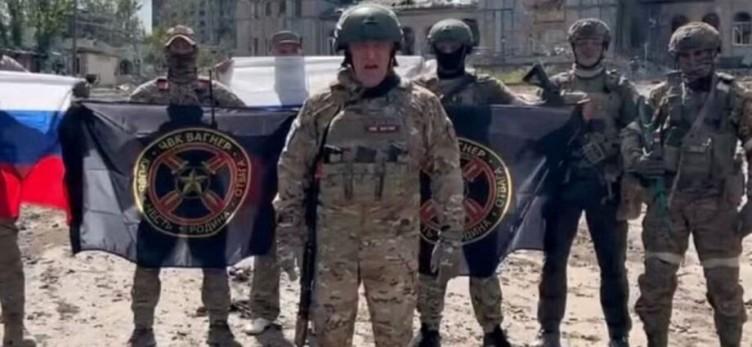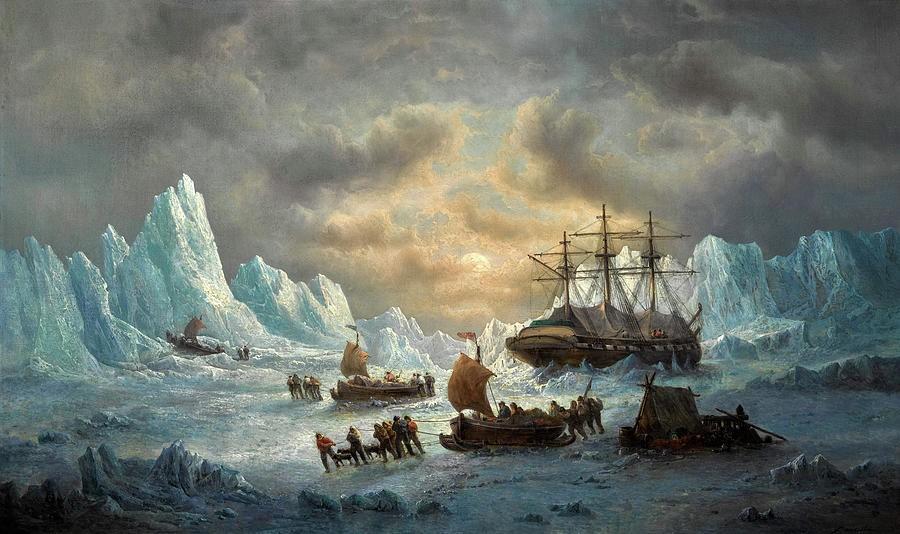“Chair Powell, what’s the value in pausing and signaling future hikes versus just hiking now?” asked Nick Timiraos from the WSJ. “I mean, not to be flippant, but I don’t lose weight just by buying a gym membership; I have to actually go to the gym,” continued the reporter, as his colleagues in the press corps looked on in awe, praying to someday engineer such a perfect question, delivered so casually, beautifully. “Sixteen of your colleagues put down a higher year-end ’23 rate today. A majority of you think you’re going to have to go up by 50 basis points this year. So why not just rip off the Band-Aid and raise rates today?”
Overall: “We’re two-and-a-half years into this or two-and-a-quarter years into this,” said the Fed Chairman at his press conference, leaving interest rates unchanged at 5.00-5.25%, below the latest 5.3% annual core CPI. “And forecasters, including Fed forecasters, have consistently thought that inflation was about to turn down, and, you know, typically forecasted that it would, and been wrong,” continued Powell. In a hyper-financialized world where money can be created and extinguished with the click of a mouse, no one fully understands inflation, let alone can accurately forecast it. “I think if you look at core PCE inflation overall, look at it over the last six months, you’re just not seeing a lot of progress. It’s running over 4.5%, far above our target, and not really moving down,” he said. “We want to see it moving down decisively, that’s all. We are, of course, going to get inflation down to 2% over time,” declared Powell, doing his best to sound confident. Because of course, the only thing more inflationary than having a central bank which has paused with inflation more than double its target, is having a Fed Chairman who appears to lack decisiveness and determination. “We want to do that with the minimum damage we can to the economy, of course. But we have to get inflation down to 2%, and we will. And we just don’t see that yet,” he said, desperate to engineer a soft landing, which of course is what all Fed Chairs must first attempt, elusive as such outcomes are. “As anyone can see, not a single person on the committee wrote down a rate cut this year nor do I think it is at all likely to be appropriate, if you think about it. Inflation has not really moved down. It has not so far reacted much to our - to our existing rate hikes and so we’re going to have to keep at it.”
Marcel Kasumovich and Mathias Nwokejiobi published an interesting piece on booms, busts, and market discipline, applied to bitcoin mining [here].
Week-in-Review: Mon: German CPI falls to 2.9%, NY Fed inflation expectations survey falls to 4.1% over 1yr and increases from 2.7% to 3.0% for 3y and 5y, Crude oil -4.3%, Summers says US economy remains “very, very hot”, AAPL to new record high, S&P +0.9%; Tue: PBOC cuts 7d reverse repo by 10 bps, US CPI 4.0% (4.1%e), US Core CPI 5.3% (5.2%e), US NFIB small business 89.4 (88.5e), UK unemp. Falls to 3.9%, UK 2yr yields rise 26 bps to new post-GFC high, TPX at highest level since 1990 - above 33k for the first time in 33yrs, S&P +0.7%; Wed: Fed keeps rates unchanged with hawkish pause, BoE agrees to external review of forecasting process, US PPI 1.1% (1.5%e), US MBA mortgage applications +7.2% and purchases +7.6%, Charles Schwab sees 2Q revenue -11% from impacts of higher rates, S&P +0.1%; Thu: ECB raises 25 bps and Lagarde signals July hike “very likely”, Japan Machine Orders -5.9% (-8.5%e), Aussie employment +75.9k (+17.5ke), UK IP -1.9% (-1.7%e), Sweden CPI 9.7% (9.5%e), US adv retail sales +0.3% (-0.2%e), US import prices -5.9% (-5.6%e), US jobless claims unchanged at 262k (245ke), Atl Fed GDP NOW to 1.8% from 2.2%, S&P +1.2%; Fri: BOJ keeps policy unchanged, yen breaks above 141, Fed’s Waller says more tightening may be needed, US Sec of State Blinken leaves for China, S&P -0.3%
Weekly Close: S&P 500 +2.6% and VIX -0.29 at +13.54. Nikkei +4.5%, Shanghai +1.3%, Euro Stoxx +1.5%, Bovespa +1.5%, MSCI World +2.7%, and MSCI Emerging +2.8%. USD rose +11.2% vs Ethereum, +4.6% vs Bitcoin, +1.7% vs Yen, +1.3% vs Russia, +0.9% vs Turkey, +0.7% vs Chile, and +0.6% vs Indonesia. USD fell -3.0% vs South Africa, -1.9% vs Australia, -1.9% vs Sterling, -1.7% vs Euro, -1.6% vs Sweden, -1.2% vs Brazil, -1.1% vs Mexico, -1.0% vs Canada, -0.6% vs India, and -0.1% vs China. Gold -0.3%, Silver -1.2%, Oil +2.3%, Copper +2.6%, Iron Ore +3.6%, Corn +12.6%. 10yr Inflation Breakevens (EU +5bps at 2.31%, US +2bps at 2.23%, JP -10bps at 0.96%, and UK +4bps at 3.81%). 2yr Notes +12bps at 4.72% and 10yr Notes +2bps at 3.77%.
Year-to-Date Equities (high to low): Argentina +44% priced in US dollars (+102.6% priced in pesos), Greece +40.3% priced in US dollars (+37.4% priced in euros), NASDAQ +30.8%, Mexico +29.3% (+13.2%), Poland +26.3% (+18.1%), Ireland +26% (+23.4%), Hungary +24.6% (+14.4%), Taiwan +22.4% (+22.3%), Italy +20% (+17.5%), Germany +19.9% (+17.5%), Japan +19.3% (+29.2%), Brazil +18.5% (+8.2%), Euro Stoxx 50 +18.3% (+15.8%), Spain +17.8% (+15.4%), Chile +16.7% (+9.1%), France +16.5% (+14.1%), Korea +16.1% (+17.4%), S&P 500 +14.8%, Netherlands +14.5% (+12.1%), Denmark +14.2% (+12.1%), Czech Republic +14.1% (+10.1%), MSCI World +13.8% priced in dollars, Russia +13.5% (+30%), Sweden +11.3% (+13.7%), Saudi Arabia +10.2% (+9.9%), Switzerland +9.5% (+6.1%), UK +8.7% (+2.6%), Portugal +8.2% (+6%), Colombia +6.7% (-8.7%), Russell +6.5%, Canada +5.7% (+3%), India +5% (+4%), Austria +4% (+1.9%), Australia +3.8% (+3%), Venezuela +3.4% (+65.1%), China +2.6% (+6%), South Africa +2% (+9.1%), Indonesia +1.3% (-2.2%), HK +1.1% (+1.3%), Belgium +0.9% (-1.2%), New Zealand +0.7% (+2.8%), Singapore +0.4% (+0.3%), Israel +0.2% (+1.6%), Philippines -0.9% (-0.9%), Finland -1.3% (-3.4%), Norway -3.6% (+3.9%), Thailand -6.6% (-6.5%), UAE -7.5% (-7.5%), Malaysia -11.4% (-7.1%), Turkey -21.3% (-0.6%).
Sustainable Investing: “So I want to go back to comments you made in the past about an unsustainable fiscal path,” said the reporter to Chair Powell, stepping back from the distraction of the Fed’s pause. “The CBO projects the federal deficit to be $2.8trln in 10yrs. The CBO also says that federal debt will be $52trln by 2033. At what point do you talk more firmly with lawmakers about fiscal responsibility?” he asked. “Because I’m assuming monetary policy cannot handle alone the inflation or keep that inflation in check with the higher level of spending.”
Hmmm: “No one’s going short here,” said Biggie Too. “You need the technical to turn first, things to roll over. Or more conclusive evidence that shows people are fully committed again,” continued the Chief Global Strategist for one of Wall Street’s Too-Big-To-Fail affairs. “It’s unclear whether the asset allocation crowd has reloaded. But if they’re coming in now, at these levels, then they’re aiming for new highs,” barked Biggie. “And you know, if they haven’t come back in force yet, why now?” he asked, obviously not waiting for an answer.
Hmmm II: “Back in 2020, when the market started climbing, and people couldn’t quite believe it, Biggie was talking to this guy who asks good questions,” said Biggie Too, sliding effortlessly into 3rd person. “The guy asked Biggie whether maybe the market knew we were gonna get a vaccine?” said Too. “And the market kept going straight up, and the guy had got it right,” he said. “So, this week, the same guy asked Biggie if maybe the market knows this war between Russia and Ukraine is gonna come to an end?” said Biggie. “And Biggie was like, hmmm.”
Machinistan: “Take any application, add AI, and you need 7x-50x the compute power,” said the entrepreneur. “AI is a black hole, it’ll suck money out of everything else and into its vortex,” he said. “The arms race between industry giants is a 20 on a scale of 1-10.” He’s building data centers for tech giants. “The whole industry is priced off of power – megawatts - that’s how we price our projects,” he said. “Data centers are really just selling power, and there are tens and tens of billions of dollars of demand for it. The cost of entry is staggering. It’s a big boy game.”
Machinistan II: “Our clients tell us they’ll take as much power as we can deliver,” he said. “If we have 500 megawatts of data center capacity coming, they say get us a gigawatt.” AI requires a limited number of people, Nividia chips and a massive amount of electricity. The projected consumption curves are breathtaking. “The firms with the clearest advantage had the largest data center capacity coming into this.” Microsoft, Google, Amazon. “Who else wins? It’s kind of hard to see China win. Killing Alibaba wasn’t the smartest move. And Europe is far behind.”
Machinistan III: “If anything in world history could aggregate economic power into a small number of hands, it is unambiguously AI,” he said. “If you got into the game now, you’d need $100bln, maybe $200bln, and your odds of winning would be no better than 20%.” Winners will keep sucking earnings from the economy. “Adapt your business to this trend. In real estate, build beds for machines. That’s what a data center is. Get short humans, long machines. People say buy Austin real estate, buy Miami, but that misses the opportunity. Find ways to buy Machinistan.”
Anecdote: “We put on airtight bio warfare suits and entered this one room building with our squad,” she said, the two of us out for a long walk. “The room was filled with tear gas. It was hot. There were two girls in camo, tank tops, bare skin. They weren’t wearing gas masks. They were huge, totally jacked, screaming orders,” said my girl. “A few percent of people are pretty much immune to tear gas, they discover them through this exercise, and then use them to intimidate us, to blow our minds,” she said. “They had us do jumping jacks until we were profusely sweating, overheating, steaming up our gas masks. Then they ordered us to strip down.” I had gotten her talking, telling stories of her new life. We spend 18yrs preparing our kids for their journey, then let them fly. Their great adventure, their work of art. “We were gasping, our lungs were burning, like we were being eaten from the inside, our skin too, our eyes were on fire. And we had to scream out the Soldier’s Creed before we could leave.” I asked her to recite it: “I am an American Soldier. I am a warrior and a member of a team. I serve the people of the United States and live the Army Values. I will always place the mission first. I will never accept defeat. I will never quit. I will never leave a fallen comrade. I am disciplined, physically and mentally tough, trained and proficient in my warrior tasks and drills. I always maintain my arms, my equipment and myself. I am an expert, and I am a professional. I stand ready to deploy, engage and destroy the enemies of the United States of America in close combat. I am a guardian of freedom and the American way of life. I am an American Soldier,” she said, proud, strong, resilient. “Then we stumbled out, one by one, some of us were puking, snot everywhere, mucus running, our eyes. And that’s The House of Tears, that’s what we call it.”
Good luck out there,
Eric Peters
Chief Investment Officer
One River Asset Management
Disclaimer: All characters and events contained herein are entirely fictional. Even those things that appear based on real people and actual events are products of the author’s imagination. Any similarity is merely coincidental. The numbers are unreliable. The statistics too. Consequently, this message does not contain any investment recommendation, advice, or solicitation of any sort for any product, fund or service. The views expressed are strictly those of the author, even if often times they are not actually views held by the author, or directly contradict those views genuinely held by the author. And the views may certainly differ from those of any firm or person that the author may advise, converse with, or otherwise be associated with. Lastly, any inappropriate language, innuendo or dark humor contained herein is not specifically intended to offend the reader. And besides, nothing could possibly be more offensive than the real-life actions of the inept policy makers, corrupt elected leaders and short, paranoid dictators who infest our little planet. Yet we suffer their indignities every day. Oh yeah, past performance is not indicative of future returns.





